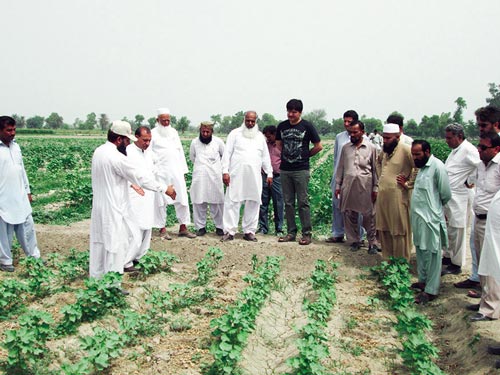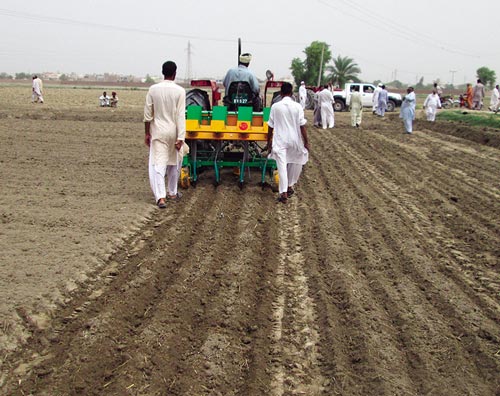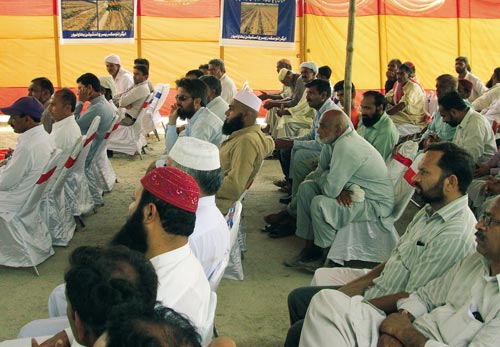By Imtiaz Hussain and Hafiz Nasrullah/CIMMYT

CIMMYT and the Punjab Department of Agriculture Research have introduced a multi-crop bed planter system in Bahawalpur, Pakistan that can be used to plant crops such as cotton, maize, pulses, rice and wheat on raised beds while applying fertilizer at the same time. The Agronomy Research Station (ARS) and the Regional Agriculture Research Institute (RARI) are collaborating with CIMMYT to test and promote the planters in Punjab State.
To create awareness among the farming community in Bahawalpur, ARS and RARI held a field day on 26 June. More than 100 farmers and agriculture experts visited the cotton field that had been planted using the multi-crop bed planter, and Dr. Muhammad Akhter of ARS shared his experience in using the planter to plant cotton on wide beds. Farmers were impressed with the crop stand in the cotton fields and were later given a demonstration on planting mung bean with the planter.

Dr. Ghulam Hussain, director of RARI, highlighted the importance of using mechanical planting for different crops in order to save resources and time while also increasing yields. Dr. Muhammad Aslam of ARS said that planting on raised beds reduces the amount of water needed for irrigation by 30 to 40 percent and also improves crop yield by 15 to 25 percent.
An assistant agronomist at RARI, Dr. Hafiz Nasrullah, explained to farmers that they only need to purchase one planter, which can be used for various crops. Farmers also learned that the multi-crop bed planter can be used to plant crops in residue and in zero tillage conditions, and that this would save them the cost of land preparation.

Aslam and Chaudhary Bashir Ahmed, agriculture extension experts, assured farmers and researchers that the extension department would do its best to transfer the successful and productive technologies to the farmers after the pilot testing had been completed.
This effort to promote conservation agriculture in Pakistan is supported by Feed the Future U.S. Agency for International Development under the Agricultural Innovation Program.
 Capacity development
Capacity development 
